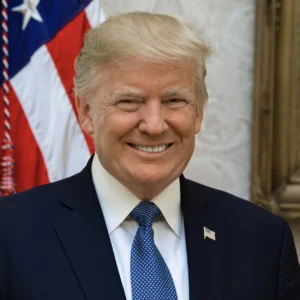President Donald Trump on Friday signed an executive order temporarily expanding the amount of beef the U.S. can import from Argentina, a move the White House says is aimed at…
Trump Says He Won’t Narrow Universal Tariff Plans
Bloomberg’s Ramsey Al-Rikabi and Maria Luiza Rabello reported Monday that “President-elect Donald Trump denied a Washington Post report that his aides are considering narrowing his tariff plan so that it would only apply to limited specific critical imports.”
“‘The story in the Washington Post, quoting so-called anonymous sources, which don’t exist, incorrectly states that my tariff policy will be pared back. That is wrong,’ Trump said in a Truth Social post on Monday,” according to Al-Rikabi and Rabello’s reporting. “The Washington Post reported that Trump’s aides were discussing applying tariffs to some goods from all countries, but targeting the list of items to those where there are national or economic security concerns, the story said, citing three people familiar with the discussions who it didn’t identify.”

“If it were to come to fruition, that plan would mark a significant narrowing of the universal tariffs of 10% to 20% that Trump proposed during his campaign, a move economists expect to drive up consumer prices and distort patterns of global trade,” Al-Rikabi and Rabello reported. “The US dollar initially fell against most major currencies Monday after the Washington Post report, with the Bloomberg Dollar Spot Index paring earlier losses after Trump said he didn’t plan to narrow the scope of the import duties. Investors also added to bets on Federal Reserve interest-rate cuts on speculation the policy won’t fuel inflation as much as a broader program.”
What the Original Report Said
The original Washington Post report, from Jeff Stein, said that “two weeks before Trump takes office, his aides are still discussing plans to impose import duties on goods from every country, the people said. But rather than apply tariffs to all imports, the current discussions center on imposing them only on certain sectors deemed critical to national or economic security — a shift that would jettison a key aspect of Trump’s campaign pledge, at least for now, said the people, who cautioned that no decisions have been finalized and that planning remains in flux. The people spoke on the condition of anonymity to describe private conversations.”
“The potential change reflects a recognition that Trump’s initial plans — which would have been immediately noticeable in the price of food imports and cheap consumer electronics — could prove politically unpopular and disruptive,” Stein reported. “But consideration of universal tariffs of some kind still reflects the Trump team’s determination to implement measures that can’t be easily circumvented by having products shipped via a third country.”
“Exactly which imports or industries would face tariffs was not immediately clear,” Stein reported. “Preliminary discussions have largely focused on several key sectors that the Trump team wants to bring back to the United States, the people said. Those include the defense industrial supply chain (through tariffs on steel, iron, aluminum and copper); critical medical supplies (syringes, needles, vials and pharmaceutical materials); and energy production (batteries, rare earth minerals and even solar panels), two of the people said.”
Trump’s Stance On Tariffs
Politico’s Doug Palmer wrote on Monday that “the report reflects the lack of concrete information about Trump’s tariff plans just two weeks before he is sworn into office. The business community is braced for Trump to issue a series of executive orders shortly after returning to the White House, but the specific details remain unclear.”
“On the campaign trail, Trump also promised to impose a 60 percent tariff on all Chinese goods and to phase out imports of essential goods from China over four years,” Palmer reported. “Since being reelected in November, he’s threatened to impose a 25 percent tariffs on goods from Mexico and Canada to pressure those countries into taking action on illegal migration and fentanyl entering the United States. He’s also threatened to impose a 10 percent tariff on China because of concerns about their role as a source of fentanyl.”
“Economists have warned that Trump’s tariff plans would raise costs for businesses and consumers, hampering another campaign promise to reduce inflation,” Palmer reported.





